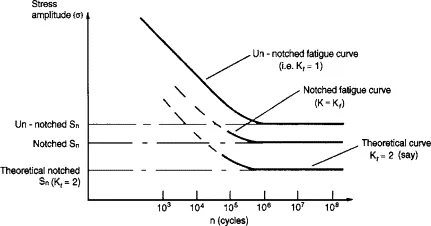In the ever-evolving world of online gaming and entertainment, the concept of the “fatigue factor” has become a crucial consideration for both players and industry professionals. As the popularity of platforms like 888casino continues to soar, understanding and mitigating the potential for fatigue is essential to ensuring a fulfilling and sustainable gaming experience. This comprehensive article delves deep into the various aspects of the fatigue factor, offering insights and strategies to help players navigate the digital landscape with renewed vigor and resilience.
Defining the Fatigue Factor

Understanding the Concept of Fatigue
Fatigue, in the context of online gaming, can be defined as the gradual decline in a player’s engagement, enthusiasm, and overall performance over an extended period of play. This phenomenon can be attributed to a combination of physical, mental, and emotional factors that accumulate as a result of prolonged gaming sessions.
The Consequences of Fatigue
The implications of the fatigue factor can be far-reaching, affecting both the player’s experience and the overall sustainability of the gaming platform. Decreased focus, diminished decision-making abilities, and a loss of enjoyment are just a few of the consequences that can arise when players succumb to the effects of fatigue.
The Importance of Addressing Fatigue
By proactively addressing the fatigue factor, players can not only enhance their own gaming experience but also contribute to the long-term viability of the industry. Maintaining a healthy and sustainable approach to online gaming can foster a more engaged and loyal player base, ultimately benefiting both the individual and the gaming ecosystem as a whole.
Identifying the Causes of Fatigue
Physical Factors
The physical demands of online gaming can be significant, particularly in games that require rapid reaction times, prolonged periods of visual attention, and repetitive hand movements. Factors such as poor posture, eye strain, and musculoskeletal discomfort can all contribute to the onset of physical fatigue.
Ergonomic Considerations
| Consideration | Importance |
|---|---|
| Appropriate seating | Maintaining proper posture and support can reduce physical strain. |
| Adjustable lighting | Reducing eye strain by optimizing screen brightness and ambient lighting. |
| Regular breaks | Scheduled breaks allow the body to rest and recover during gaming sessions. |
Importance of Physical Activity
- Engaging in regular physical activity can help counteract the sedentary nature of online gaming.
- Exercise can improve blood circulation, boost energy levels, and promote overall physical well-being.
- Incorporating a balance of aerobic, strength, and flexibility exercises can help maintain a healthy body and mind.
Cognitive Factors
The cognitive demands of online gaming can be equally taxing, requiring players to process a significant amount of information, make rapid decisions, and maintain a high level of concentration for extended periods.
Attention and Focus
- Sustaining attention and focus becomes increasingly challenging as gaming sessions progress.
- Distractions, both internal and external, can further exacerbate the cognitive strain.
- Techniques like mindfulness and cognitive training can help improve attention and focus.
Memory and Decision-Making
- Complex games often require players to retain and manipulate large amounts of information.
- Fatigue can impair memory function and decision-making abilities, leading to suboptimal gameplay.
- Strategies such as information chunking and mnemonic devices can aid in memory retention.
Stress and Emotional Factors
- The competitive nature of online gaming can induce stress and emotional strain.
- Unresolved emotional challenges can contribute to the onset of fatigue and burnout.
- Practicing stress management techniques and fostering a positive mindset can help mitigate the emotional toll of gaming.
Strategies for Avoiding Fatigue

Establishing Healthy Habits
Balanced Routine
- Develop a consistent routine that incorporates regular gaming sessions, breaks, and other activities.
- Ensure a balance between gaming, work, and personal life to prevent excessive gaming and burnout.
Nutrition and Hydration
- Maintain a balanced and nutritious diet to fuel both physical and cognitive performance.
- Stay hydrated by drinking water regularly during gaming sessions.
- Avoid excessive consumption of caffeinated or sugary beverages that can lead to energy crashes.
Sleep and Relaxation
- Prioritize getting adequate, quality sleep to allow the body and mind to recharge.
- Engage in relaxation techniques, such as meditation or yoga, to manage stress and promote overall well-being.
Optimizing the Gaming Environment
Ergonomic Setup
- Invest in a comfortable and adjustable gaming setup to minimize physical strain.
- Ensure proper posture, lighting, and equipment positioning to support long gaming sessions.
Minimizing Distractions
- Identify and eliminate potential distractions, both physical and digital, to maintain focus and concentration.
- Create a dedicated gaming space that is free from external interruptions.
Customizing the User Interface
- Personalize the game’s user interface to enhance visibility, accessibility, and overall user experience.
- Optimize settings such as font size, color schemes, and control layouts to minimize cognitive load.
Incorporating Breaks and Variation
Scheduled Breaks
- Implement a system of regular, scheduled breaks to allow for physical and mental recovery.
- Engage in activities during breaks that promote relaxation and rejuvenation.
Alternating Game Modes
- Explore different game modes or genres to prevent monotony and maintain a sense of novelty.
- Varying the gameplay experience can help sustain engagement and prevent the onset of fatigue.
Cross-Training Activities
- Engage in non-gaming activities that challenge different cognitive and physical skills.
- Pursuing hobbies, physical exercise, or other leisure pursuits can provide a necessary respite from gaming.
Leveraging Technology and Tools

Automated Monitoring and Alerting
- Utilize software or applications that can monitor gaming patterns and provide alerts for potential fatigue signs.
- These tools can help players recognize when it’s time to take a break or adjust their gaming habits.
Productivity and Time Management Apps
- Incorporate productivity and time management apps to help players maintain a healthy work-life balance.
- These tools can assist in scheduling, prioritizing tasks, and tracking time spent on gaming activities.
Biofeedback and Tracking Devices
- Utilize wearable devices or biofeedback tools to monitor physiological indicators of fatigue, such as heart rate, stress levels, and sleep quality.
- This data can inform players’ decisions on when to take breaks and adjust their gaming routines.
Community Support and Peer Interaction
- Engage with online gaming communities to share experiences, strategies, and support one another in avoiding fatigue.
- Peer-to-peer interaction and encouragement can help players maintain a healthy and sustainable approach to gaming.
Cultivating Mindfulness and Self-Awareness

Understanding Personal Limits
- Develop self-awareness to recognize personal signs of fatigue, such as decreased focus, emotional changes, or physical discomfort.
- Establish personal boundaries and limits to prevent overexertion and burnout.
Mindfulness Practices
- Incorporate mindfulness techniques, such as meditation or deep breathing exercises, to enhance present-moment awareness and emotional regulation.
- Mindfulness can help players better manage stress, improve decision-making, and maintain a balanced perspective during gaming sessions.
Goal-Setting and Reflection
- Set achievable goals and regularly review progress to maintain a sense of purpose and accomplishment.
- Engage in reflective practices, such as journaling or self-assessment, to gain insights into personal gaming habits and areas for improvement.
Seeking Professional Support
- Consider consulting with healthcare professionals, such as sports psychologists or physical therapists, to address specific challenges related to fatigue and burnout.
- Professional guidance can provide personalized strategies and support for maintaining a healthy and sustainable gaming lifestyle.
Conclusion
The avoidance of the fatigue factor is a critical aspect of maintaining a fulfilling and sustainable online gaming experience. By understanding the underlying causes, implementing proactive strategies, and leveraging technology and tools, players can navigate the digital landscape with renewed vigor and resilience.
Through the cultivation of healthy habits, the optimization of the gaming environment, and the nurturing of self-awareness and mindfulness, players can overcome the challenges posed by the fatigue factor and enjoy the full range of benefits that online gaming has to offer. By prioritizing their well-being and maintaining a balanced approach, players can foster a mutually beneficial relationship with the gaming industry, contributing to its long-term success and their own personal growth.
As the online gaming landscape continues to evolve, the principles outlined in this comprehensive article will serve as a guiding framework for players, empowering them to avoid the pitfalls of fatigue and embrace the true joy and excitement of digital entertainment.



